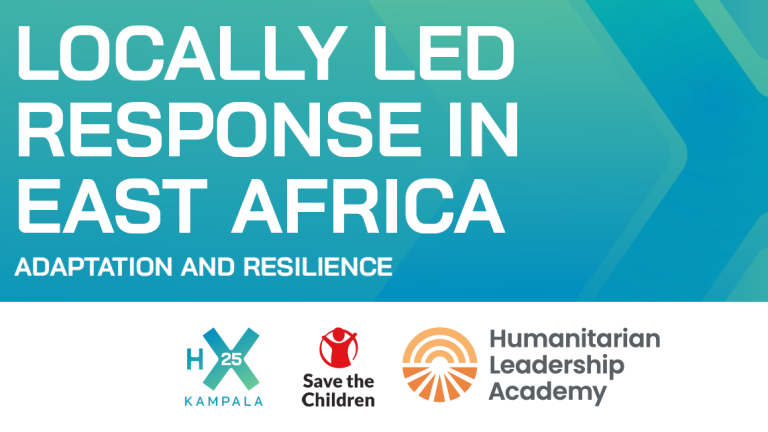Congratulations to the Education in Emergencies Certificate of Advanced Studies (EiE CAS) Asia residential participants! Between 21-28 October, this immersive residential provided a stimulating and enriching in-person learning experience for participants from across the Asia Pacific – and represented the first time that this residential has taken place as part of the University of Geneva-accredited EiE CAS programme in the region.
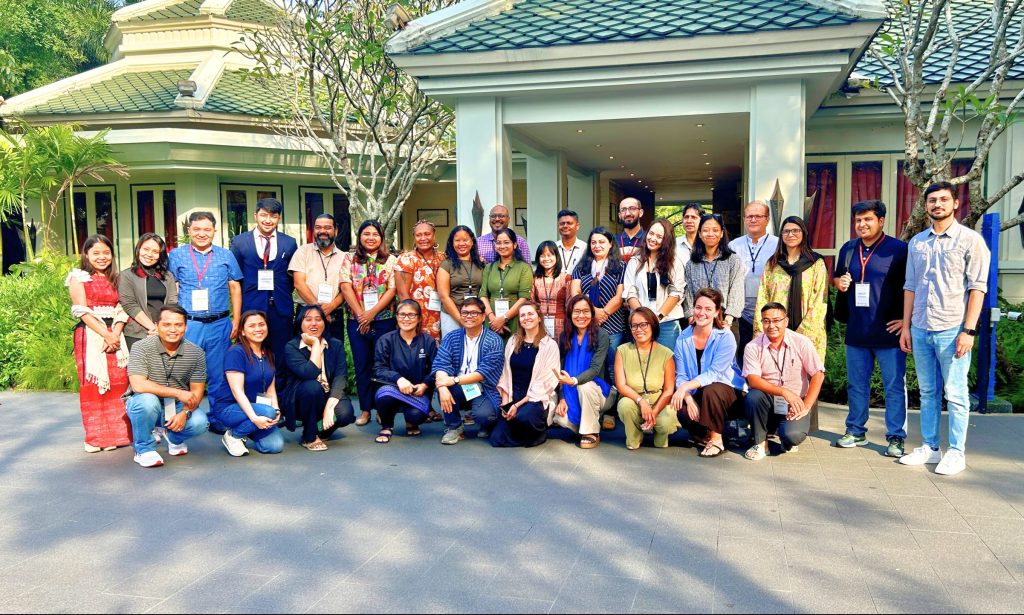
EiE CAS Asia residential in numbers
20
participants from 8 countries for the EiE simulation
24
participants from 9 countries for Transformation of Training
56
hours of learning per participant
12
Women participants
13
local organisations represented
8
countries represented by the facilitation and support team
The residential represented a milestone moment for these education sector professionals who have been learning together online on the EiE CAS programme for the past nine months.
Participants travelled from Afghanistan, Bangladesh, India, Indonesia, Myanmar, Nepal, Pakistan, Papua New Guinea and the Philippines to convene in a tranquil location on the banks of Bangkok’s Chao Phraya river for a fruitful week of learning.
This training is really such an eye-opening experience for me, especially because there are participants from many countries in Asia. So it’s really a cross-learning opportunity. We have been learning this course for nine months, and learning the materials online alone is of course quite different from being with the team members and doing experiential learning. The simulation is really an opportunity to learn and make mistakes under some guidance so that we will be ready for the professional setting.
Participants represented a diverse range of organisations including local organisations, international organisations such as Save the Children, Plan International, and NRC, as well as UN and government agencies. With the HLA Asia Regional Centre’s commitment to localisation, over half of participants represented local organisations.
Watch the highlights
See some of the week’s top moments
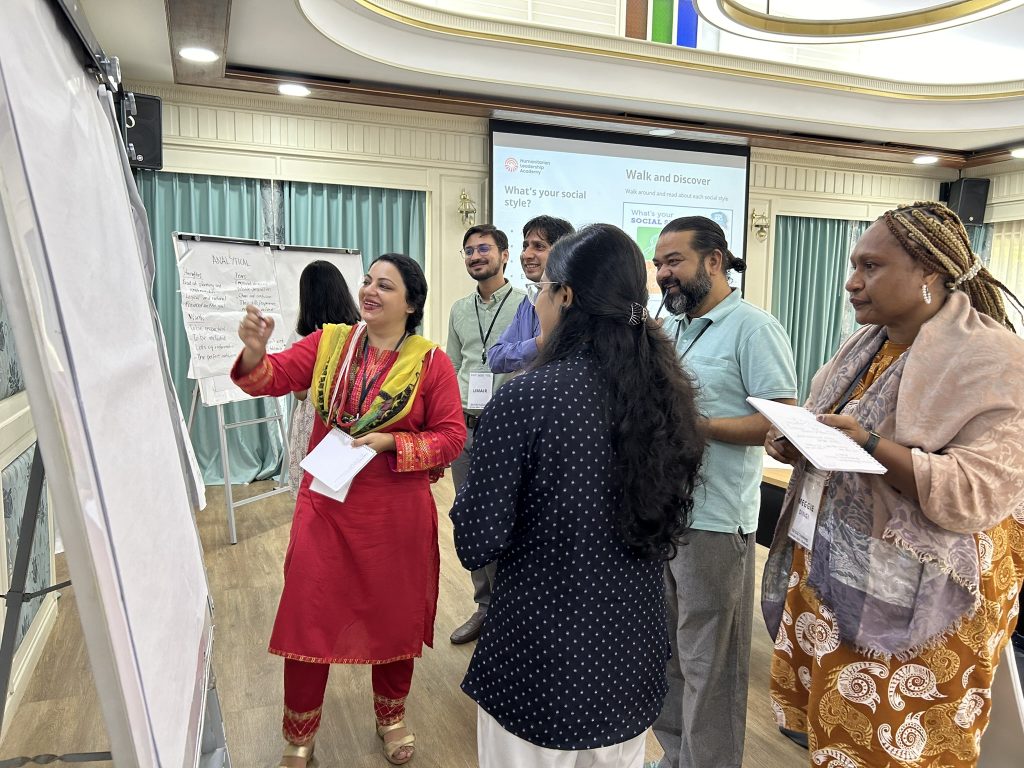
Efren Lubuguin, the HLA EiE Professional Development Programme Manager for Asia, leads this programme in the region, and for the residential was supported by a global facilitation team from Asia, Europe and the Middle East.

Interactive and immersive learning
The residential provides an opportunity for the participants to apply their skills and knowledge gained from the programme and their own professional experiences.
The programme was carefully designed to provide an engaging blend of workshops, immersive four-day simulation, and was rounded off with a two-day Transformation of Training (ToT) – equipping participants with the skills to develop EiE training in their own contexts.
Proceedings kicked off with an interactive session focused on teamwork essentials and a deeper dive into key topics including safeguarding, in readiness for their intensive four-day simulation.
From day two, the expert facilitation team guided participants to the fictional setting of Galania, working together in NGO teams in a realistic scenario and testing their technical and collaborative skills under pressure.
For many participants, this experience underscored the critical importance of adaptability, especially in unpredictable and resource-limited situations.

One of the best things that this education in emergencies simulation provided to me was that it was not only supervised by the subject matter expert while we were putting our learning into practice, but we were also provided a simulated environment of instability and lack of resources and we had to adapt and become more flexible to be changing and evolving situations and the needs of different stakeholders. Leaving this simulation, I feel that I’m more prepared now for education in emergencies programming, especially in the context of Pakistan and child rights.
Cross-cultural exchange and networking
With participants joining from nine Asia Pacific nations and a global facilitation and support team, a highlight of the residential experience was the opportunity to meet and learn from each other’s experiences.
Through this opportunity I learned a lot from the facilitators and also from the students…The students come from different countries, different cultures and different contexts. They are implementing education projects. They address their challenge and their achievement of implementation of EIE in their context. It’s really beneficial for me and I took the skill from here to manage training by considering different angles of training or different stages of training.
A vibrant cultural event was held to celebrate the completion of the simulation, with participants showcasing traditional dress and sharing cultural traditions and heritage with each other, creating an enjoyable and meaningful exchange.
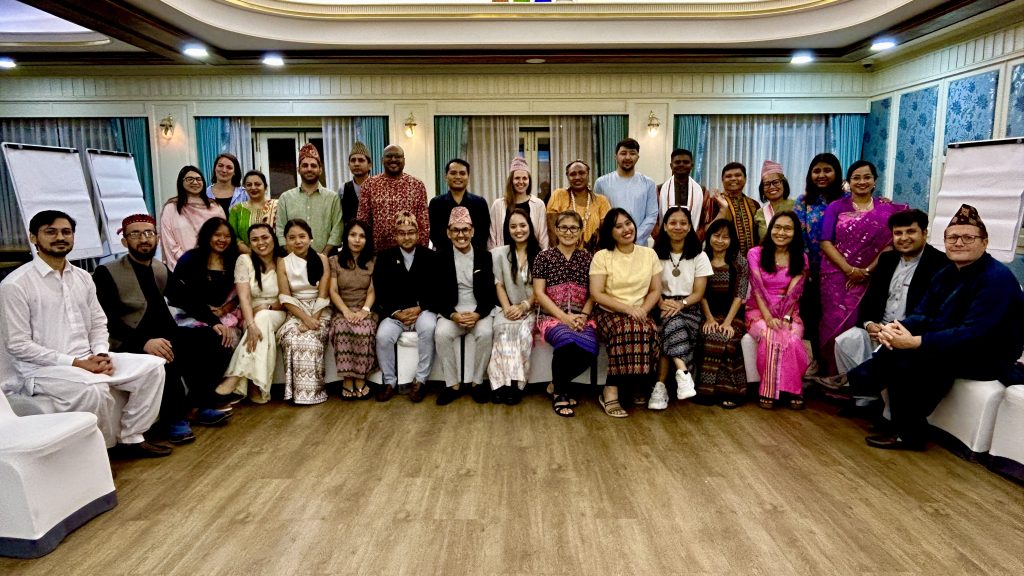
Strengthening capacity: building a pool of expert facilitators across the Asia Pacific region
As these professionals return home, they bring with them not only their learning from the week but also the ability to cascade this expertise locally.
With the completion of the Transformation of Training programme (ToT), these EiE professionals are now equipped to facilitate further training, fostering a growing network of EiE experts across Asia Pacific who are prepared to respond to education in emergencies.
This innovative approach to training highlights the value of simulation-based learning, which provides a realistic and hands-on environment for professionals to hone their skills.
As crises continue to impact education systems across the region, the work of these EiE experts will be crucial in supporting crisis-affected communities through education as a lifesaving intervention.
The ToT is very, very practical because this is a way where we would be able to actually transfer our learning to the next people to build the capacity. So I liked all the activities which are interactive, and how they are introducing us with the new events and activities, which is really exciting.
As the cohort approach the final programme module, they are a step closer to earning their Certificate of Advanced Studies accredited by the University of Geneva – and a step closer to making a lasting impact on education in emergencies across the region.
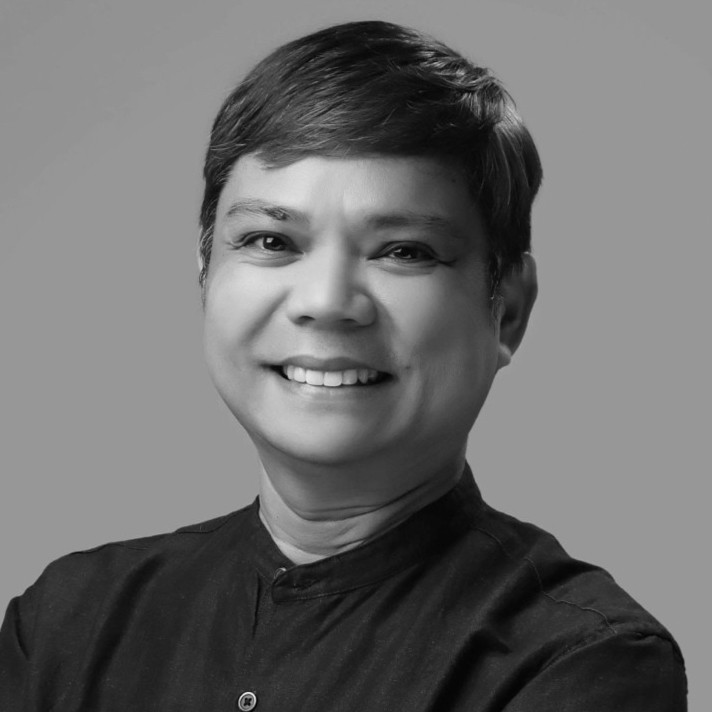
The EIE CAS simulation and ToT was an amazing experience with the global team of facilitators and students from the Asia Pacific region. Students met co-mentors among each other in the field of EiE and as a result they would like to establish their own community of practice. It was wonderful to see how differences in culture and context can work together in aspiring for education of children in crises.
Reflections on the residential
Watch our video featuring a range of participant reflections
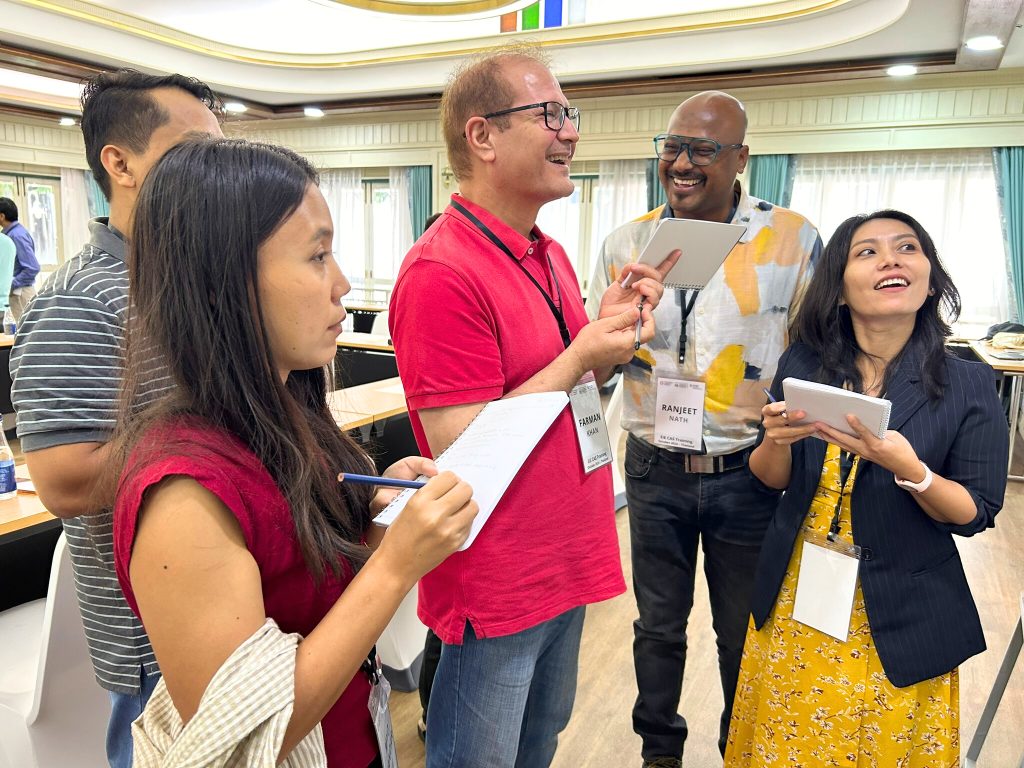
It is always impressive to see the residential module of the CAS. Indeed, online education is precious and allows access to a whole range of knowledge wherever you are, but interactions, communication, informal chats, teamwork in presence, are important dimensions of training. I was impressed by the seriousness of students and their engagement in any task. They do not know each other well but they performed as teams really quickly!
The HLA Asia Regional Centre extends its thanks and appreciation to colleagues from Save the Children International, to Save the Children Thailand Country Office for its support, to the University of Geneva, and funders PPL Education Trust.
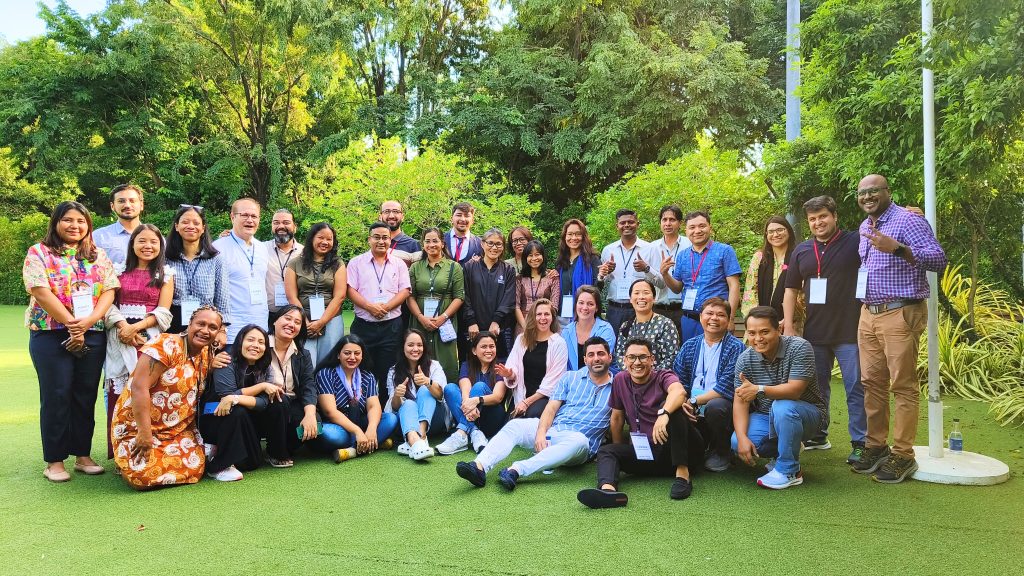
You may also be interested in
- Pre-event news article: Education in Emergencies residential training for the Asia Pacific region set to take place in Thailand
- Free EiE Online programme available the HLA’s digital learning platform Kaya, available in English, French, Spanish, Arabic, Ukrainian and Polish. This course is designed to help Education in Emergencies (EiE) and education practitioners improve their overall understanding of EiE or their knowledge of specific EiE topics and areas.

